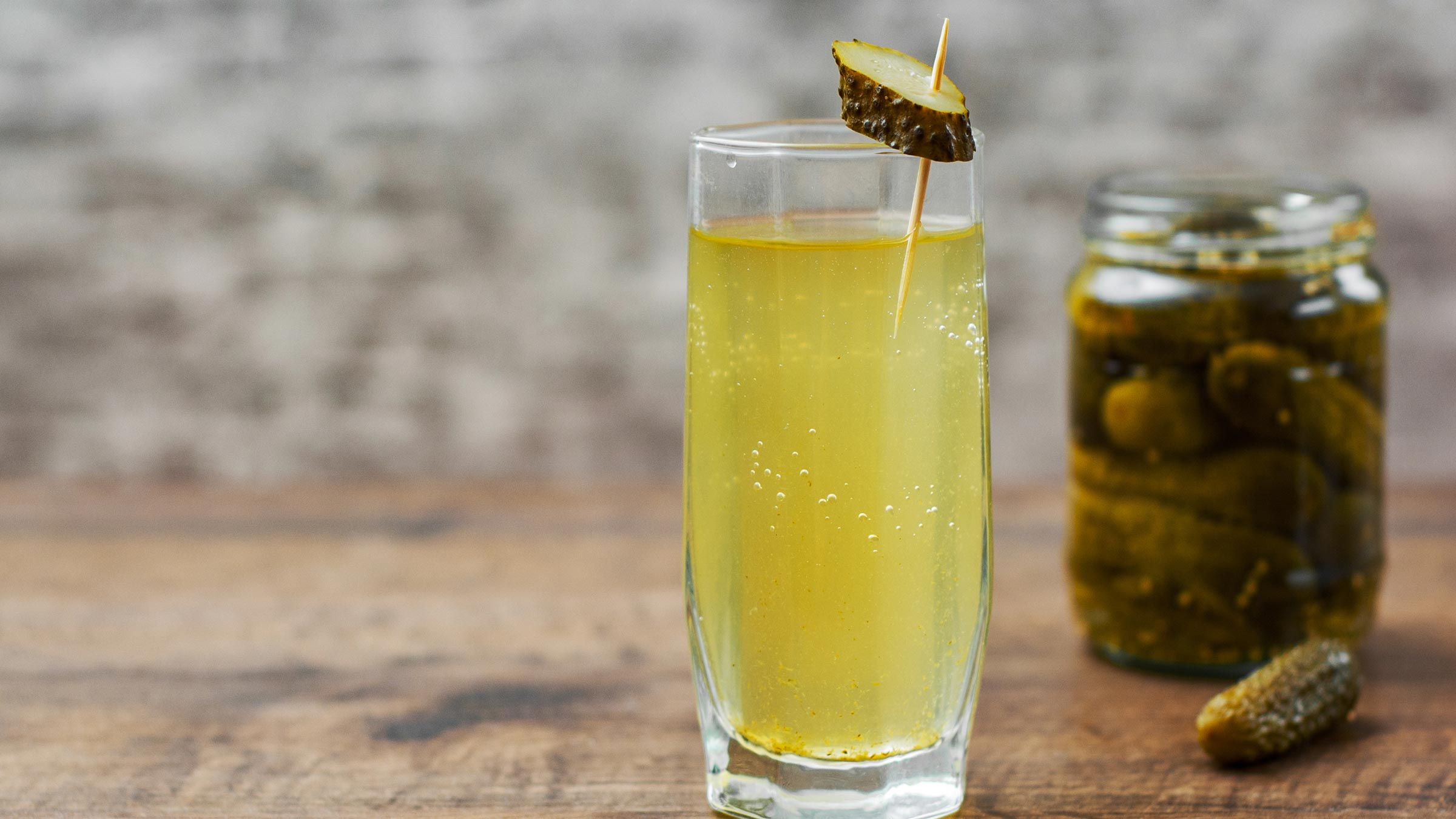
Ever have a pickle juice craving? It might sound like a strange drink, but some have taken a fancy to the yellow-green beverage because they enjoy the taste or consider it healthy. While there are a lot of claims of how pickle juice can boost your health, the fad’s most well-established benefit is to your gut.
Here’s what pickle juice can do in the body:
Increase gut bacteria
Some pickle juice contains probiotics, sources of bacteria that can help promote a healthy gut. The pickle juice with probiotics comes from cucumbers packed in a solution of salt water, also referred to as brine, and allowed to set until bacteria grow and consume most of the carbohydrates in the cucumber. When you eat fermented pickles or drink pickle juice, you’re also consuming the colonies of bacteria formed during fermentation.
Not all pickle juice is made the same way. Pickles made from a mixture of vinegar and salt would not contain probiotics because no fermentation occurs. Most fermented pickles or juice will be clearly labeled as such and may also use the term “probiotics” on the package, since these characteristics are a strong selling point.
Help with hangovers
Since hangovers are often brought on by dehydration and a loss of electrolytes, pickle juice could serve as a source of sodium and potassium to help replenish lost electrolyte stores. But you’d still need to drink plenty of water along with pickle juice to recover.
Regulate your blood sugar
If the pickle juice contains vinegar (not all does), it could help reduce blood sugar levels, according to some research. The research suggests that drinking vinegar may improve the body’s response to insulin, a hormone that controls your body's blood sugar level. Since this practice isn’t considered evidence-based, there aren’t any established guidelines for how much pickle juice you should drink and whether you should drink the juice before or after meals.
Reduce muscle cramps
Some research has shown the benefits of pickle juice in reducing and recovering from cramps if you’re mildly dehydrated. Don’t count on it to boost your performance, however. Studies indicate that athletes drinking varying amounts of pickle juice before or after workouts appear to see little to no effect on their performance, core temperature and hydration. Sports drinks might provide better support in preventing muscle cramps, because they typically contain less sodium than pickle juice, plus additional electrolytes such as potassium and magnesium and a much higher content of water.
The downside of drinking pickle juice
For all its possible benefits, pickle juice also has a significant drawback: It contains a lot of sodium. I generally wouldn’t recommend drinking pickle juice, especially if you have health concerns such as hypertension or renal, liver or heart disease. Since there are plenty of other low-sodium options for probiotics, the benefits of pickle juice are unlikely to outweigh the risks.
There are lots of recipes online for pickling (fermented and non-fermented) vegetables, but most are high in sodium. If you enjoy the taste of pickles and want to have some additional health benefit, you may be better off fermenting cucumbers and then having an occasional fermented pickle rather than drinking pickle juice, since you’re likely to take in more sodium when drinking the juice alone.






